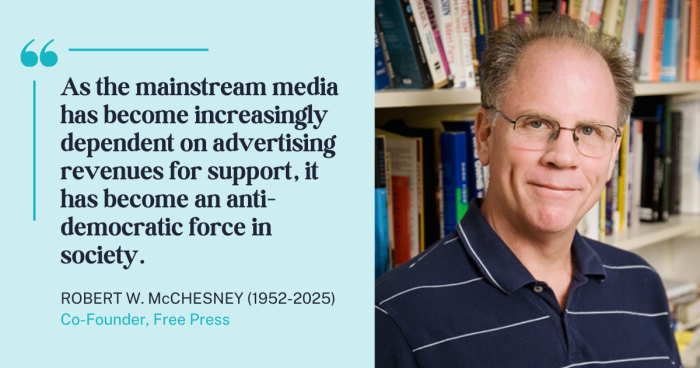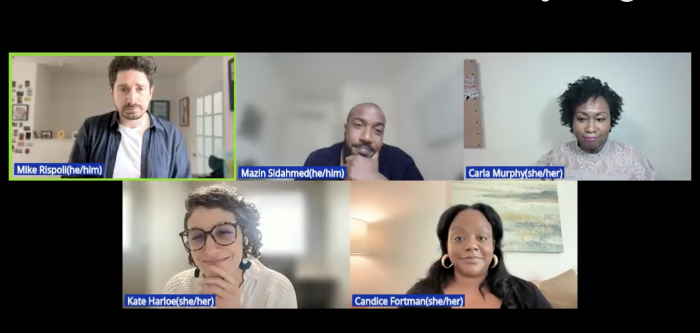A Huge Step Forward for Affordable High-Speed Internet

The past couple of years have been arduous, with the COVID-19 pandemic ravaging and disrupting our communities.
The importance of having affordable internet at home was thrown into sharp relief by the rising need for remote schooling, online work and telemedicine, to name just a few. At the same time, the economic crisis has crystallized one of the core problems at the heart of the digital divide: Too many people can’t afford the high-speed internet connections that have become so essential.
With this digital divide in the foreground, last week the Senate voted to pass the Infrastructure Investment and Jobs Act (IIJA), which represents a historic opportunity to bridge the digital-equity gap. This bill still has some hoops to jump through, and it doesn’t solve everything, but it represents a significant step forward for universally affordable high-speed internet.
So what’s in it?
The biggest financial piece of the pie is $40 billion for grants to help internet service providers deploy broadband in unserved areas (meaning, areas with no broadband service that meets the minimum 25/3-mbps-speed threshold) and underserved areas (areas that have 25/3, but don’t meet the 100/20-mbps-underserved threshold). That’s important, because you definitely can’t subscribe to home-internet service if it’s not available in your neighborhood. The bill also aims to improve broadband-pricing transparency and prevent discrimination, although these provisions could have been made stronger and more comprehensive.
But perhaps most groundbreaking is the additional $14.2 billion going to support a more permanent internet-affordability benefit.
This effectively extends the Emergency Broadband Benefit program funded in last December’s pandemic-relief package by bankrolling it for the future and expanding the eligibility threshold so that even more people can qualify. The IIJA also directs the FCC to pass important consumer protections for this new iteration of the program and requires participating ISPs to accept the benefit for all their tiers of service — rather than unjustly limiting low-income families to certain preselected offerings.
That means the renamed Affordable Connectivity Program (ACP) will be able to help more people, offer more protections and provide more choice.
One drawback is that the IIJA explicitly allows ISPs to shut off internet service for ACP customers who miss payments — a practice that is draconian during emergencies like the COVID-19 pandemic, and one we’ve been fighting against with the Utility Justice Coalition for over a year.
Another potential issue is that under the more permanent program, the benefit will be reduced from $50/month to a maximum of $30/month (if you live on Tribal lands, the maximum amount will stay steady at $75 monthly).
It’s possible this reduced benefit will extend the program’s longevity and broaden its impact, which would be a very good thing. But it may also force some families to limit their choices or pay out of pocket for what would otherwise have been a free-to-the-user service.
But there’s more work yet to do
We already know the internet marketplace is not built for low-income families and people of color. One area where we’ve already seen problems arise is restrictive data caps. Recently, internet provider Cable One reported that most of its EBB customers are current customers who’ve chosen to upgrade their service to much faster tiers, costing far in excess of the existing $50 benefit.
It could be that these families truly want faster speeds — but more likely, they’re trying to avoid Cable One’s pointlessly restrictive data caps. Cable One imposes extremely low data caps, so much so that the cap for its entry-level tier is more than 25 percent below the company’s average-customer data use. And if you go over your cap, Cable One hits you with outrageous fees. It’s a punitive cash grab, plain and simple.
The FCC could address these kinds of abuses in the permanent benefit if the IIJA becomes law, thanks to language directing the agency to protect participants from “unjust and unreasonable acts or practices” related to the benefit program.
To investigate unjustly restrictive data caps in the broader marketplace, of course, the agency would need to restore its own authority under Title II of the Communications Act — a long-overdue rectification of the Trump FCC’s blatantly ideological campaign against Net Neutrality. Under Title II, the FCC would have the power to check ISPs’ unfair and unreasonable practices, and to build off the IIJA’s successes to promote a truly universal, affordable and equitable internet marketplace.
But we’re unlikely to see Title II restored until the FCC has a fully staffed commission, and we won’t see this permanent benefit program until the IIJA makes it through the House and gets the president’s signature. That’s why we’re calling on the Biden administration to finally nominate a fifth commissioner to the FCC — and it’s why we’re working to ensure the IIJA goes the distance and provides much-needed relief to struggling households.





